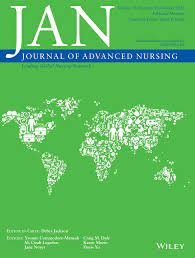HBTQ+, psykologiska perspektiv och bemötande: Kapitel “Migration och asyl”.
Den här boken tar ett omfattande grepp om frågor som rör homo, bi, trans, queer och en rad andra identitetskategorier som alla relaterar till sexualitet, relationsbildning, kön och könsuttryck i boken samlade under akronymen hbtq+. Författarna sätter in dessa frågor i ett historiskt och teoretiskt ramverk och gör en grundläggande genomgång av aspekter som rör hälsa och ohälsa i relation till hbtq+. Fördjupande kapitel rör områden som barn och ungdomar, föräldraskap och migration. Praktisk kunskap om professionellt bemötande tas upp och handfasta råd vägleder läsaren. Boken vänder sig till dig som är studerande eller verksam inom ett människovårdande yrke.
HBTQ+ är skriven av flera av Sveriges mest kunniga psykologer och forskare inom området.
The Lancet: Considering chronic uncertainty among Syrian refugees resettling in Europe.
(Med Charles W Cange, Ceren Acarturk och Fouad M Fouad)
The uncertainty of the asylum-seeking process has been associated with a multitude of stressors and poor mental health outcomes.1 Data indicate that daily stressors mediate the effects of previous war-related trauma in shaping mental health outcomes, such as post-traumatic stress disorder symptoms. Along with uncertainty, asylum seekers can experience many mixed emotions, including hope, fear, anger, distrust, and relief. Traumatic events, such as being forced to leave one’s own country; being trafficked, tortured, or sexually assaulted; and facing death threats; among others, can severely damage an asylee’s own sense of trust and security.
ACCESS Health journal: LGBTQ Migrant Health Needs: a Case Study With Special Focus on Mental Health Services Provided at a Sexual Health Clinic in Stockholm
LGBTQ-migrants as a group has to a large extent been overlooked by academia, health services and civil society, and their experiences invalidated. The psychological treatments offered at a sexual health clinic in the outskirts of Stockholm includes both individual and group therapy interventions. At the centre of these interventions lies the challenge of exploring complex issues like sex, sexuality and identity within highly diversified cultural contexts. The strain put on queer migrants before, during and after migration are often multiple, complex and severe. Furthermore, the uncertainty of the asylum process as well as ongoing experiences of homo- and transphobia and racism in Sweden additionally complicates treatment of a potentially highly traumatized patient group. This is illustrated through the case of Niki.
Insikten: Ska vi prata om sex?: – Patienters upplevelser av hur sex och sexualitet behandlas i psykodynamisk psykoterapi.
(Med Jonas Pettersson)
Från att ha varit centrala i den tidiga psykoanalysen har frågor om sex och sexualitet fått allt mindre utrymme i moderna psykodynamiska teorier. Även i terapirummet verkar dessa ämnen fortfarande svåra att närma sig. Är sex och sexualitet inte längre en självklar del av psykodynamiska psykoterapeuters verksamhetsområde?
LGBTQ migrants mental health support group manual
(Med Anna Renée Winget)
This manual is designed as a unique practical and theoretical tool to offer a peer-to-peer support group intervention for LGBTQ newcomers.
It has been developed through a pilot project conducted at RFSL Stockholm, funded by Region Stockholm, led by queer migrant researchers and psychologists along with newcomers themselves. Newcomers consist of lesbian, bi, gay, and transgender people who have been forced to flee their home countries due to violent discriminatory practises against LGBTQ people.
The creators hope this manual will help inspire and guide other groups serving Newcomers populations to offer mental health support in the form of peer-to-peer support groups.
När något jobbigt har hänt
(Med Ylva Edling, Moa Gisterå, Kajsa Jung, Thora Magnusdottir & Jonas Viksten)
Krisstödsmanualer för barn och ungdomar framtaget av BUP Barnahusteam. Arbetsböckerna erbjuder visuellt stöd, åldersanpassad psykoedukation kring trauma och traumarekationer och praktiska övningar. De används i krisstödsbehandling av patienter utsatta för fysiskt eller sexuellt våld i nära relation.
Post-migration psychosocial experiences and challenges amongst LGBTQ+ forced migrants: A meta-synthesis of qualitative reports
(Med Maria Gottvall, Anna Eldebo, Frida Johansson Metso, Maria Jirwe och Tommy Carlsson)
Two themes were identified through meta-synthesis of qualitative reports. The first theme illustrates the psychological distress and numerous challenges and stressors forced migrants face after arrival, including challenges encountered as an LGBTQ+ forced migrant, psychological reactions and manifestations, and practical issues related to resettlement and living conditions. The second theme highlights the resilience and strength they find through various internal processes and external resources, including resilience and strengthening resources, identity formation and establishing and maintaining social relationships. Peer support stands out as a highly appreciated and promising resource that needs further attention in experimental research.
Nurse education about forced migrants with diverse sexual orientations, gender identities, and gender expressions: An exploratory focus group study
(Med Maria Gottvall, Anna Eldebo, Rogers Kissiti, Elisabeth Mattsson, Maria Jirwe och Tommy Carlsson)
In many countries, forced migrants can seek asylum based on persecution and danger related to self-identifying as having diverse sexual orientations, gender identities, and gender expressions. Nurse education has a significant role in promoting cultural competence among future health professionals. This qualitative study with focus group discussions explore the experiences and views regarding education about forced migrants with diverse sexual orientations, gender identities, and gender expressions, among students and lecturers in nurse education. Promoting a broader understanding regarding societal structures and preparing students to provide culturally sensitive care were considered as essential components in nurse education. Students and lecturers describe several challenges and problems that need to be addressed in regard to forced migration, sexual health, and inclusion health. There seems to be a need for utilization of external competence in learning activities as well as establishing clearer guidelines, which may increase the quality of education and better prepare future nurses to support patients with diverse backgrounds and identities.







